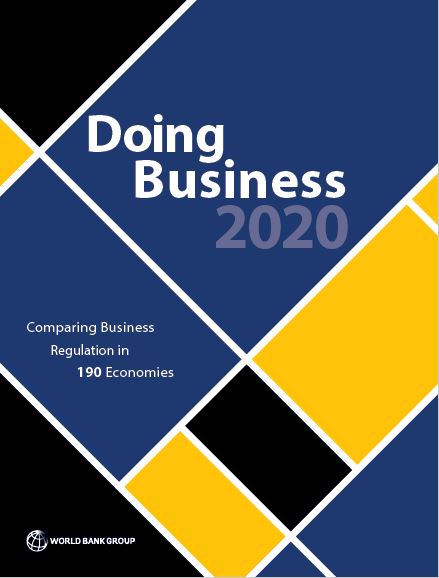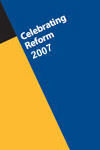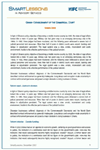
Removing obstacles to entrepreneurship
The case study on reforms analyzes prominent regulatory changes implemented by governments since the inception of Doing Business. Among the most common regulatory changes over the past 17 years are simplifying the requirements to start a company, easing tax compliance burdens, increasing access to credit, and ensuring the survival of viable businesses. The case study also discusses the effects of regulatory changes on various dimensions of economic development and investment activity.

Getting Credit - Credit Information: Casting a wide net to expand financial inclusion
A comprehensive credit reporting system that includes credit history data not only from banks but from other institutions— such as trade creditors, leasing and factoring companies, retailers and utilities and microfinance institutions—is critical in the establishment of a well-developed and inclusive financial infrastructure.

Getting Credit - Legal Rights: Two approaches to developing an integrated secured transactions regime
In recent years, modern secured transactions regimes, the milestone to facilitating access to finance for small and medium-size enterprises, have gained lots of attention from policy makers who struggle to adjust their legislations in order provide a favorable business environment for small companies.

Getting credit: The importance of registries
Effective systems for secured transactions and credit reporting can improve access to finance for small and medium-size enterprises. This is confirmed by the data for the expanded indicators on getting credit, which this year also cover the functional approach to secured transactions, more features of the collateral registry and the availability of credit scores as well as online access to credit information.

Panama: Reforming the credit bureau law
Many of Panama’s 300,000 small and medium businesses—employing 68% of workers in the country—were cut off from loans under previous credit bureau regulations. And more than 40% of Panamanian adults, mostly the poorest, had no formal credit options. This was in spite of Panama’s advanced financial markets.

Peru: Bringing more credit to the private sector
Most entrepreneurs in search of a loan go to the bank. But in countries with inadequate collateral laws, banks are less willing to lend—as in Peru before the 2006 reform of its secured transactions law. For recording security interests, Peru used to have 17 registries for different kinds of assets, each with its own regulations and requirements.

Trinidad and Tobago: Bringing credit reform to the Caribbean
Before 2004, getting comprehensive credit information was a challenge for lending institutions in Trinidad and Tobago. But some saw an opportunity to innovate and create the first fully automated credit bureau in all of the Caribbean .

Bolivia: Finance for all, Integrating microfinance to credit information sharing
In 2001, Bolivia’s borrowers had taken out too many loans and they could not pay them back. Amidst an economic crisis, people were demanding that their debts be forgiven. In July 2001, the situation got so bad that hostages were taken at the Superintendence of Banks and Financial Entities, Bolivia’s financial regulator.

China: New property rights law
After a record 14 years of consultation, China’s long awaited new Property Rights Law was finally passed on March 16, 2007. For the first time the law offered equal protection to socialist public property and private property.

Establishing a Sound Credit Reporting System: Perspective from Doing Business
This SmartLesson paper focuses on the Doing Business Getting Credit – Credit Information index, which measures rules and practices affecting the coverage, scope, and accessibility of credit information available through a credit bureau or registry. Thirty-five of the 189 economies measured by Doing Business do not have an entity that manages database on the creditworthiness of borrowers in the financial system.
